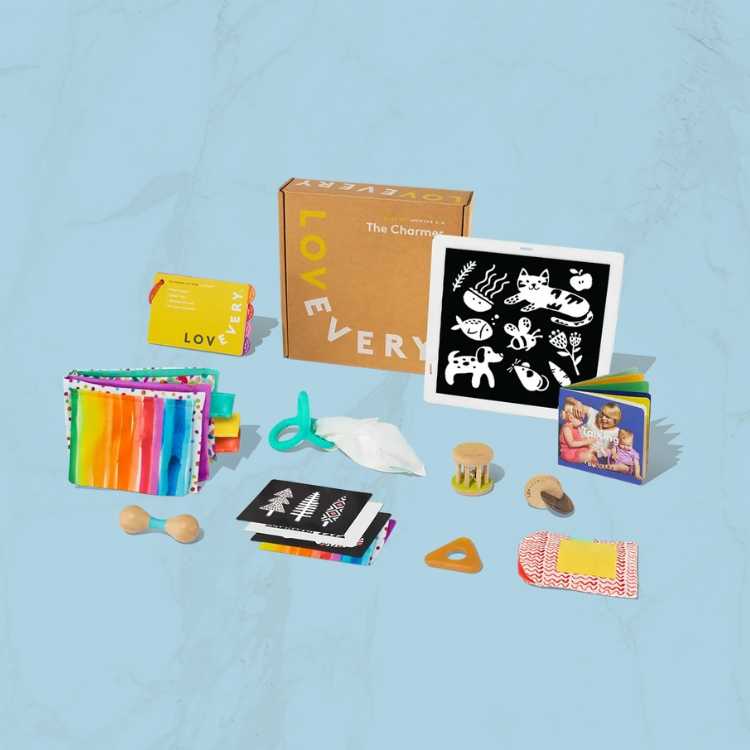When babies start eating solid foods, we often try as much as possible to make sure they get the healthiest diet. But are there better alternatives for baby solid food other than vegetables? And what are the best vegetables for babies?
Whether they are fresh or frozen, veggies are one of the nutritious options for babies. They are sources of vitamins, carbs, fiber, minerals, and antioxidants. While they are packed with essential nutrients, your baby isn’t going to accept them unless you prepare them like a pro.
How to Help Your Baby Become a Veggie Lover for Life
Getting vegetables into babies’ tummies is always a tough task, especially for new moms. This is because kids are well known for not always liking the colors and textures of vegetables. If you want to raise children who are veggie lovers, here are helpful tips to follow:
(i) Start as Early as Possible
The first step for raising children who love vegetables is to start early. By doing so, your kids begin to believe that vegetables are part of their daily diet. The best vegetable to introduce should be an avocado because it’s delicious, easy to prepare, and doesn’t require cooking.
(ii) Try Different Textures and Tastes
If you have been using a single recipe to prepare vegetables, now it’s time to take a different approach. You can steam, roast, mix into a smoothie, or even blend in a soup. To make them tastier and enhance acceptance, add some herbs and spices.
(iii) Involve Your Kids
As your kids get older, allow them to be part of the preparations. You can plan with them when and where to buy the groceries. Let them pick their favorite vegetables, and allow them to try new recipes. Children are more likely to be happy when eating vegetables they have prepared.
(iv) Try Again and Again
If your baby refuses to eat the vegetables, don’t feel discouraged. What you need to know is that introducing solids to babies is a bit tricky process. And declining to eat doesn’t mean they don’t like it. Keep presenting the food daily and over time, they’ll start to accept it.
(v) Always Start with Veggies
If you notice that your kids don’t like vegetables, always start serving them first before moving on to grains, dairy, or protein. The idea here is to make sure the children eat veggies when they are still hungry.
(vi) Be Creative
Sometimes, the use of creativity when dealing with kids could make things easier. For example, you can prepare vegetables in simple and fun shapes to encourage kids to eat. There are so many kitchen gadgets to help you create these shapes like carrot peeler, cookie-cutter, or even scissors.
What are The Best Vegetables for Weaning Babies?
After getting approval from your pediatrician to start solids, you might be unsure how to get started. There’s plenty of information on the web about the best recipes for babies, making it a little bit difficult for you to know the best route to take.
According to the American Academy of Pediatrics, babies can start eating vegetables whenever they reach six months. At this time, they can sit with no support, control their head, open their mouths and swallow food rather than pushing it back.
If you are a first-time mom looking for the best vegetables for your baby, here’s a helpful list. However, always ask your pediatrician about the right thing to do before introducing solid food to your baby.
1. Avocado
This superfood tops the list of best vegetables for babies. Because it contains healthy fats, protein, minerals, and essential vitamins, avocado is an excellent first food for your baby. Its soft texture and neutral flavor make it baby-friendly.
Avocado is delicious and easy to prepare. It could be mashed with a fork or puree in a food processor. For 9 to 12 months babies, you can offer a combination of avocado and other healthy foods like peas, broccoli, or spinach.
2. Broccoli
Broccoli is a host of many vitamins and minerals that babies need. This dark vegetable is rich in calcium, an essential compound for strong teeth and bones. It also contains omega-3, fiber, vitamins A, C, K, B6, and iron.
When preparing broccoli, cut it in a way that your baby is capable of picking the florets. Broccoli for babies must be steamed until it becomes soft.
As your baby gets older, you can start cooking it a little less. Research says that microwaving or overcooking broccoli allows it to lose nutrients. However, it shouldn’t be served raw or crunchy.
3. Carrots
Babies can start eating carrots at the age of 6 months. Because of their hard, crunchy texture, first-time moms might think that they aren’t the best fit for babies. When mashed, however, becomes one of the best solid food for moms who are spoon-feeding their little ones.
Carrots are packed with essential nutrients that support the baby’s development. They are not only rich in fiber but are a great source of vitamin A, which is very important for baby’s eyes. It also boosts the immune system of your baby.
4. Cauliflower
Just like broccoli, cauliflower is a delicious and nutritious vegetable for babies. When steamed, it can be served to kids of all ages, including first-time eaters. You can even roast it to help your kids learn how to chew.
The reason why cauliflower is among the best vegetables for babies is because of its nutritional value. It’s a great source of vitamin B, C, and K. Cauliflower is also loaded with antioxidants that enhance the baby’s immunity.
Cauliflowers exist in different colors. Some are green, orange, white, and even purple. Each color presents different nutrients. For example, orange cauliflowers contain beta-carotene while the purple ones are loaded with anthocyanins.
5. Cucumber
You can start giving your baby cucumber as soon as he or she is half a year old. Cucumber can be served by cutting long, thin slices. This makes it easy for the baby to swallow.
95 percent of cucumber is water, which provides a cooling sensation to babies’ teething gums. Cucumber contains small amounts of vitamin K and zinc. It’s loaded with tannis, which promotes wound healing.
6. Green Beans
Green beans should be introduced to babies whenever they start solids, generally around 6 months. Babies need to be served with cooked green beans when they are in their full form. Uncut green beans are safe as they couldn’t be accidentally swallowed by your baby.
Why should you feed your baby with green beans? These vegetables have tons of benefits to the eaters. They are a great source of vitamin A, an essential nutrient for strengthening eyesight. Green beans are also loaded with vitamin K which is necessary for blood clotting.
In addition to vitamins, green beans contain fiber—a critical nutrient for preventing constipation and enhancing the baby’s bowel movement. Lastly, green beans are packed with protein (helps with growth, maintenance, and repair of your baby’s body).
7. Kale
New moms many wonder whether they should feed kale to their infants. If you are one of those parents, then it’s now time to know the truth. And yes your baby can start eating kales around 12 months.
Kale is one of the most nutritious vegetables in grocery stores. This leafy green vegetable is a great source of iron, which is an important mineral for baby’s blood production. It is also high in potassium, calcium, vitamin A, and C.
Just like other leafy greens like spinach, kale is also associated with some risks. It contains nitrates, which affect oxygen levels in the blood. For this reason, it’s important to introduce kale when your baby is 12 months.
8. Mushroom
When introducing solids to your baby, don’t forget to add mushrooms to the menu. Just like the majority of vegetables, babies should begin eating mushrooms around 6 months of age. Always serve your baby with cooked mushrooms and are in small pieces.
Mushrooms have plenty of health benefits. First, mushrooms contain polysaccharides and minerals. These compounds are well known for boosting the baby’s immune system. They also contain a special fiber, known as probiotic fiber, which is crucial for a healthy gut.
The phytonutrients found in mushrooms have antimicrobial, antioxidant as well as anti-inflammatory properties.
9. Pumpkin
You could start feeding your baby pumpkins as soon as he or she begin solid foods, which is around 6 months. You can either steam, boil or bake. More people prefer baking pumpkin rather than boiling or steam as it contains tons of water contents.
The benefit of baking pumpkins is that it does not lose most of its nutrients. Baking also results in great flavors and unique textures. As your baby gets older, you can add some spices or combine mashed pumpkin with spinach puree.
One of the reasons you should feed pumpkin to your baby is its nutritional composition. This yellow gourd is packed with vitamin A, which aids in eye health, immunity, and cell growth. Other nutrients found in pumpkin include iron, potassium, folate, and more.
10. Spinach
If you want to introduce spinach to your baby, then you need to wait until 12 months. Why? It contains a high level of nitrate, a compound that might be dangerous for the health of babies. Pediatrics say excess nitrate can affect oxygen levels in the baby’s blood.
While introducing spinach seems to be a risky affair, there are a few things you can do to minimize nitrate exposure. These may include, offering it in moderation, purchasing frozen spinach, and boiling.
When prepared well and served in moderation, spinach can promote the health of your baby. It is a great source of fiber, which is important for bowel movements. Spinach also contains omega 3-fatty acids, protein, vitamin K, and iron.
In addition to these essential nutrients, spinach contains a high concentration of magnesium, an essential mineral that supports muscle and nerve function. And because of its tons of benefits, spinach shouldn’t be withdrawn in your kid’s first foods.
11. Sweet Potato
Around 6 months of age, parents could start introducing sweet potatoes to their babies. These root vegetables have been the common first food for babies in the world. And every baby seems to like them because of their delicious taste, soft texture, and wonderful flavor.
Sweet potatoes are loaded with fiber, which helps to alleviate constipation and enhances bowel movement. Due to their high concentration of vitamin A, babies who love sweet potatoes develop strong eyesight.
Other benefits associated with sweet potatoes for babies are colon health, immune system, brain function, heart health, and prevention of anemia. For first-time eaters, you can introduce sweet potatoes as puree.
12. Tomatoes
Babies should start eating solid food around 6 months. And it doesn’t mean your little one should only be served with mashed bananas and rice cereal. In fact, your baby should be introduced to foods rich in iron, vitamin, and protein. This is where tomatoes steps in.
Whether they are canned, cooked, or raw, tomatoes are one of the best vegetables for babies. They contain vitamin A, which is important for your kids’ eyesight. Other unique benefits that come from eating tomatoes include heart health, immunity, and brain development.
The Final Thought
Choosing the best vegetable for your baby shouldn’t be a big issue. There is an assortment of nutritious greens available in the market. However, it is important to try each vegetable at a time.
If your baby seems not to like one vegetable, that doesn’t mean they can’t be a veggie lover. The best solution is to try a different type of vegetable. Also, it is worth noting that most of these foods are introduced when the baby reaches 6 months. But there are some veggies that need to be introduced at around 12 months after the birth of your baby.
Elisha Philip











